This is how COVID-19 is impacting families in Kenya
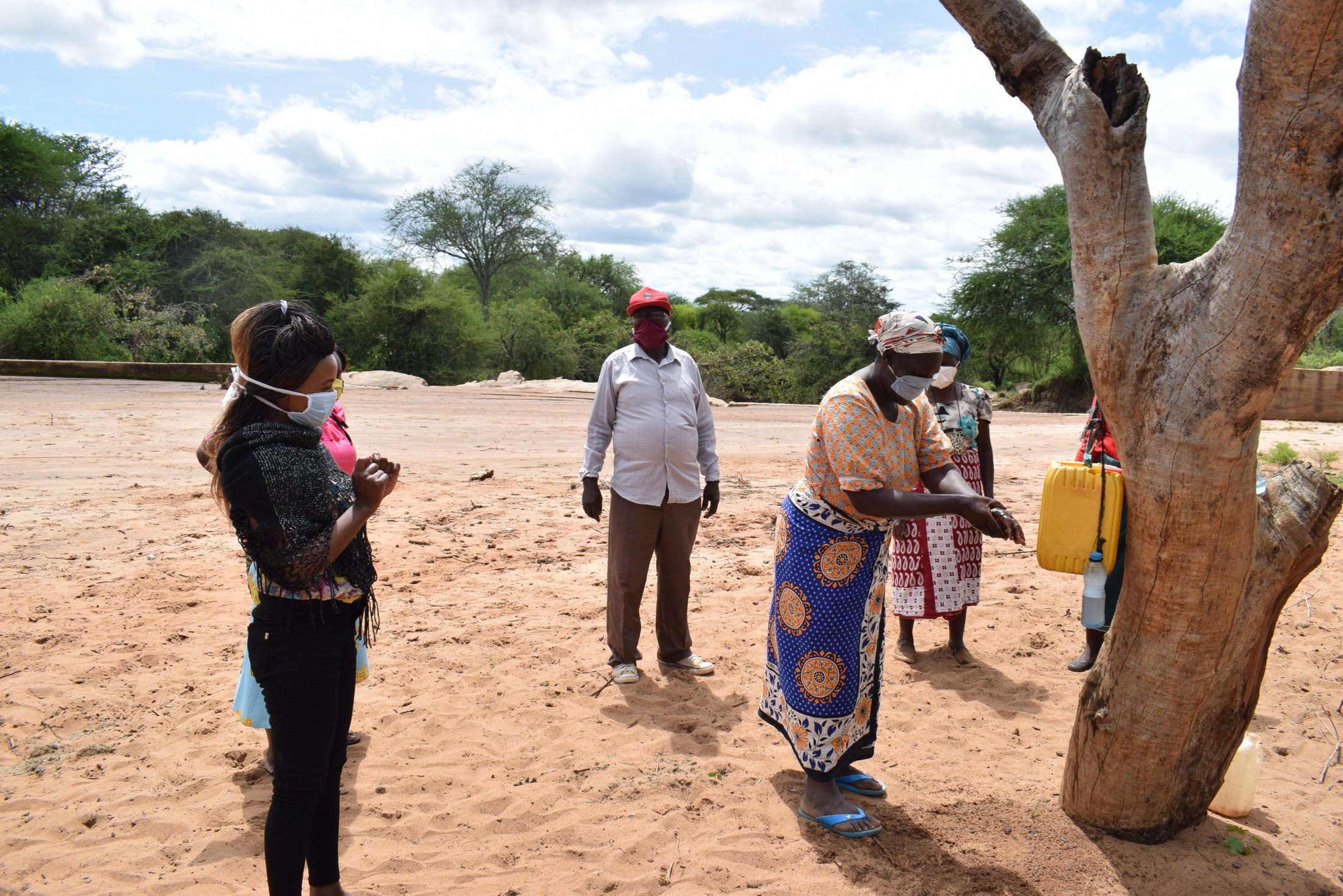
In this extraordinary time, we continue to partner with communities across Kenya, Sierra Leone, and Uganda. We are checking in to see how the COVID-19 pandemic is impacting people and their families.
The Water Project is considered an essential organization due to our longstanding work on hygiene and sanitation. We expanded our work in response to the pandemic, and we are working in coordination with the Kenyan government. Our teams are sensitizing communities on how to prevent the spread of COVID-19. We also continue to monitor and support each of our water points.
Join us on the frontlines in every community we serve in the fight against COVID-19.
In southeast Kenya, we recently conducted a series of interviews. Fortunately, these communities do not have to worry about getting water thanks to the sand dam and hand-dug wells constructed through The Water Project. But the spread of COVID-19 and the response in Kenya is creating new challenges for people in the region. The first question we asked was how COVID-19 has impacted a person’s family.
Here are a few of their responses:
Bernard Wambua, 40
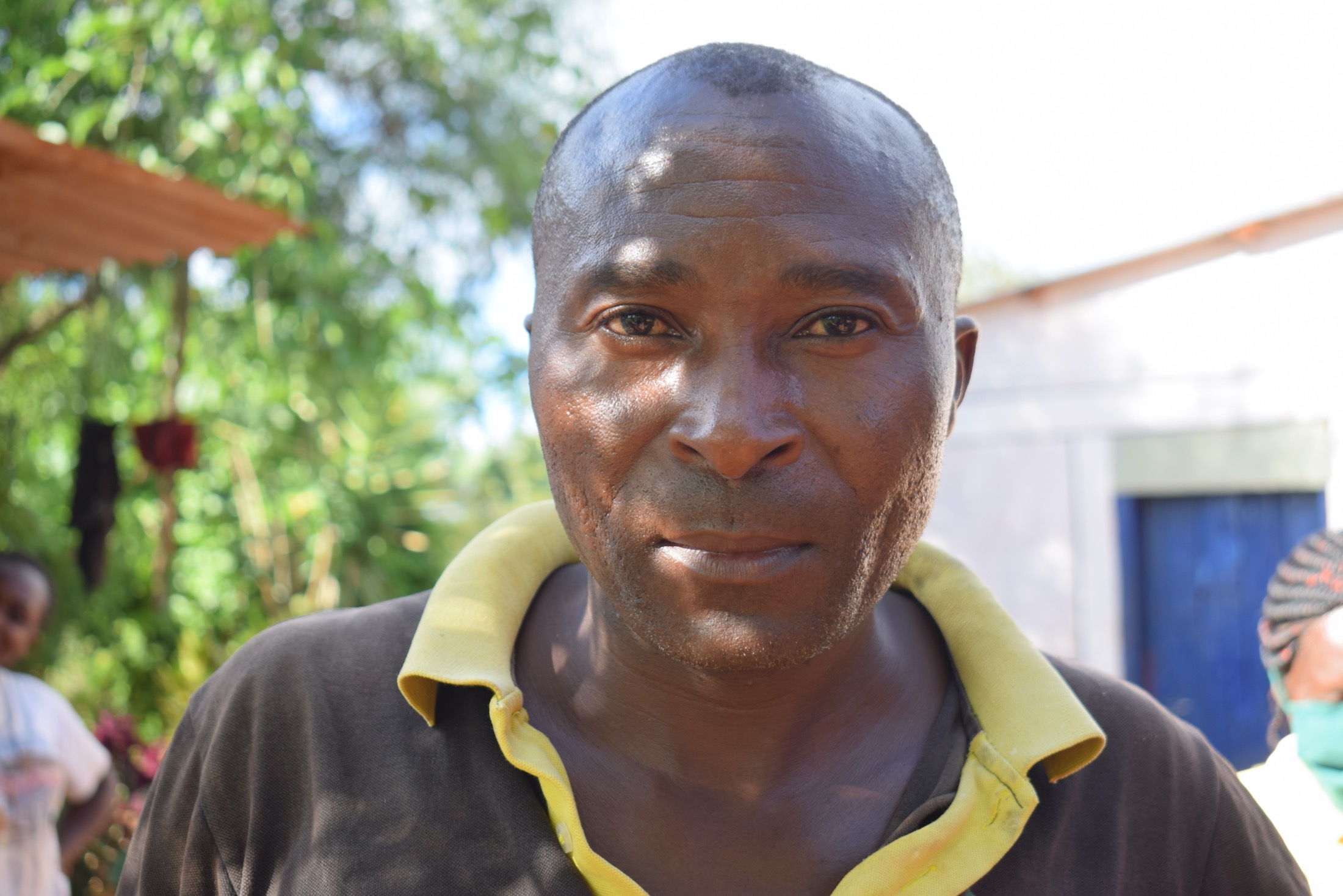
Bernard Wambua
“I have been working as a painter before the onset of this disease in our country. As a casual laborer, I would be called by clients to work on different projects frequently. There was a constant flow of cash, but now, things have changed totally as there are no jobs. Schools were closed and now we have to stay at home with our children, and it’s expensive. We have to work extra hard on the farm in order to get food to feed the family. The harvests are good, but we are unable to sell the food products at the market because they were also closed in a bid to prevent the spread of the coronavirus…We have been getting food from our farm as we have had very bountiful harvests during this period. The only challenge faced has been attaining the supplementary items which need to be bought from the market, such as wheat flour, sugar, and salt, among others. Availability of water from the sand dam project has also enabled us to establish a vegetable garden in our compound where we have planted kale, spinach, and tomatoes.”
Lydia Paul, 70
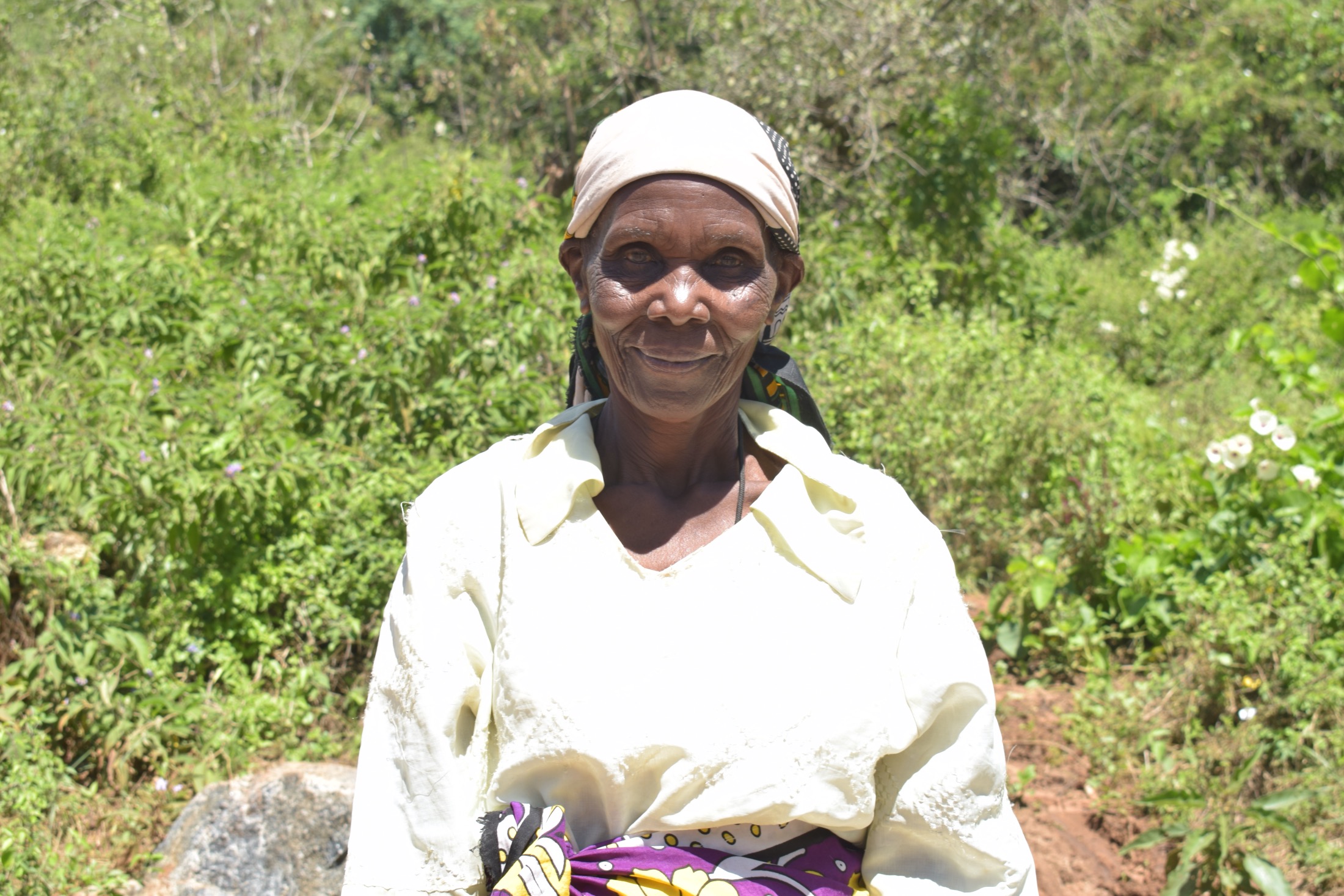
Lydia Paul
“My income levels have been affected very much. A daughter of mine who has been offering financial support was sacked because the business she worked for closed, and she is no longer able to support me like it has been the case before. My grandchildren are no longer going to school because schools are closed, and I am no longer able to engage in my business of selling firewood because of the government directives banning movement and visiting public places…I had a bumper harvest in the previous rainy season because of the good farm terracing training offered to us by the area field officer. I was able to harvest maize, cowpeas, and green grams, which are helping cut food costs in these times. My challenge has been getting other food items such as vegetables because markets are closed and also the shop items because of my low-income status currently.”
Mary Kitheka, 61
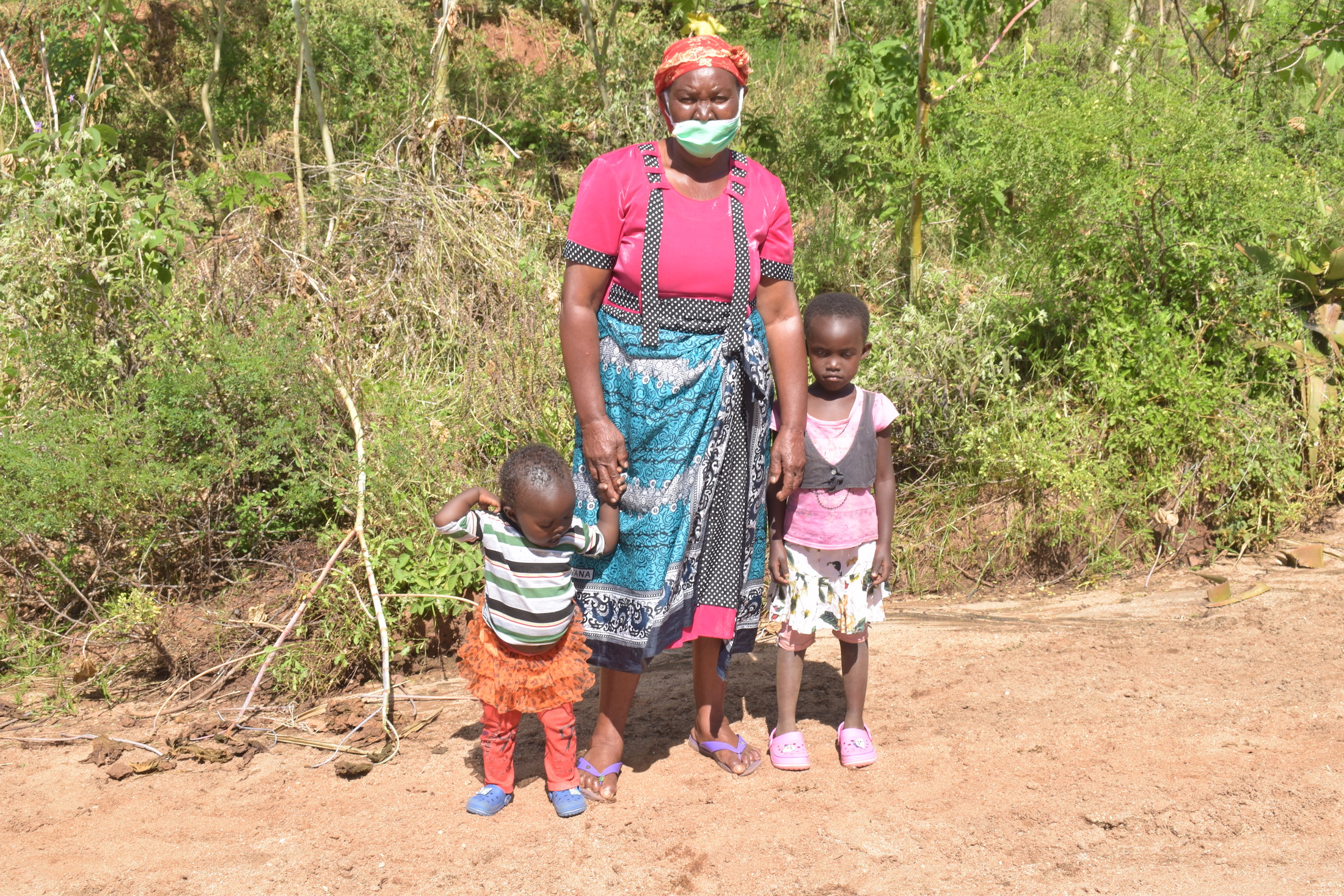
“All my working children were sacked and others, their companies closed, sending them home with no pay. This has brought a lot of financial challenges at home. In the past rainy season, I had a small harvest. There is none left because of the increased consumption at home. The situation is bad because market days are suspended, and I cannot even sell livestock and get money for upkeep.”
Mutunga Mutisya, 51
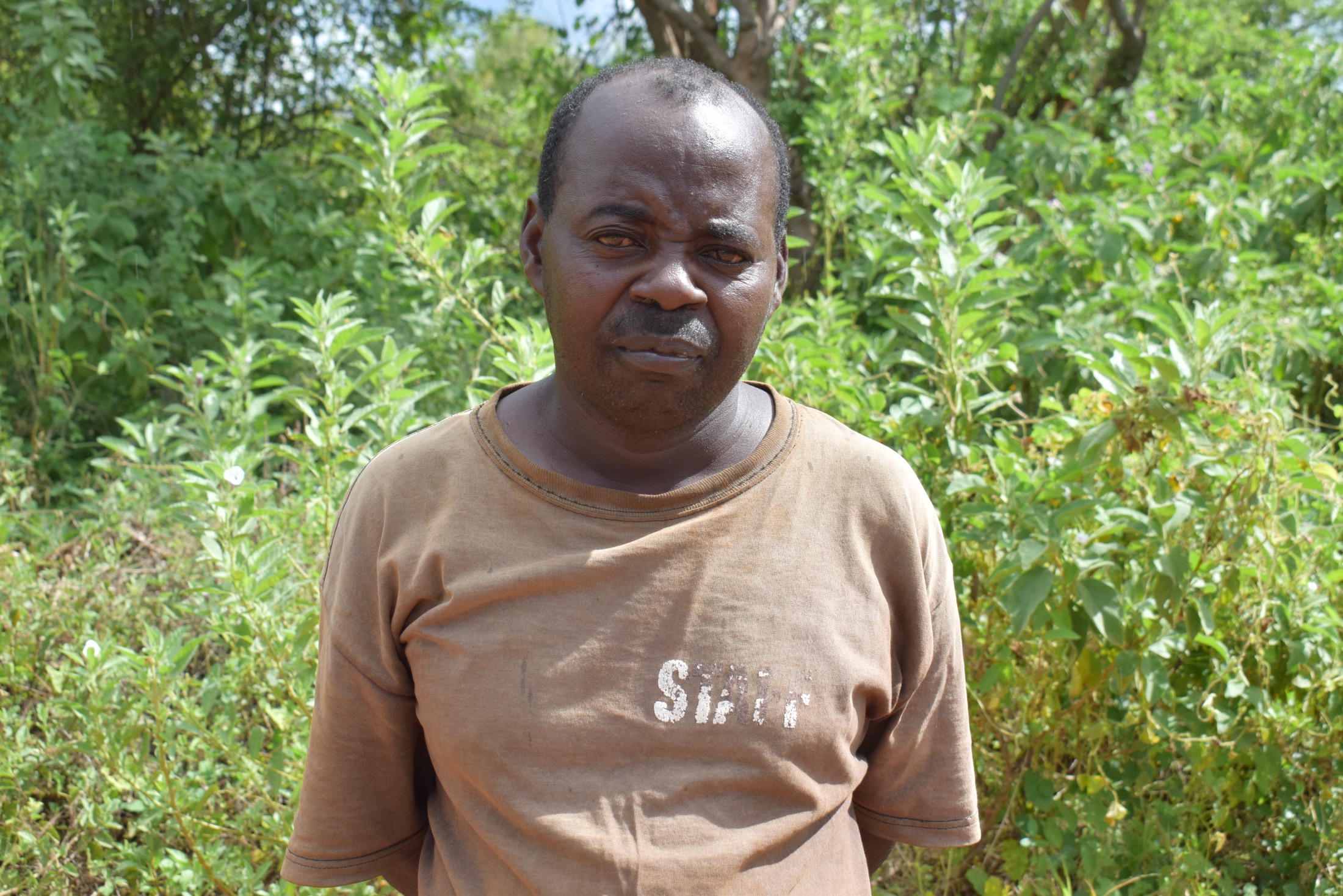
Mutunga Mutisya
“Everything changed since the onset of coronavirus in Kenya. Our lifestyles have changed, and the time limit set in the country is very tight, especially for some of us who are casual laborers. Initially, we would go to look for casual jobs in other towns, but such movements are impossible now. As a result, this has made our life hard because there is no flow of income. Markets in the area have remained closed, and this has impacted us negatively because we are unable to sell our farm products. My family has to survive on food harvested from the farm because there’s no money to buy food from retail shops. Children are not attending school, and this makes them susceptible to adopting bad behaviors as it’s difficult to monitor their movement throughout the day…We had good harvests thanks to the heavy rains experienced in the previous rainy season. In addition, the water from the sand dam has been helpful in watering our crops. Food from the farms is available. However, buying supplementary cereals and foodstuffs from the shops and markets has been difficult during this time because we do not have money for that.”
Jane Maitha, 56
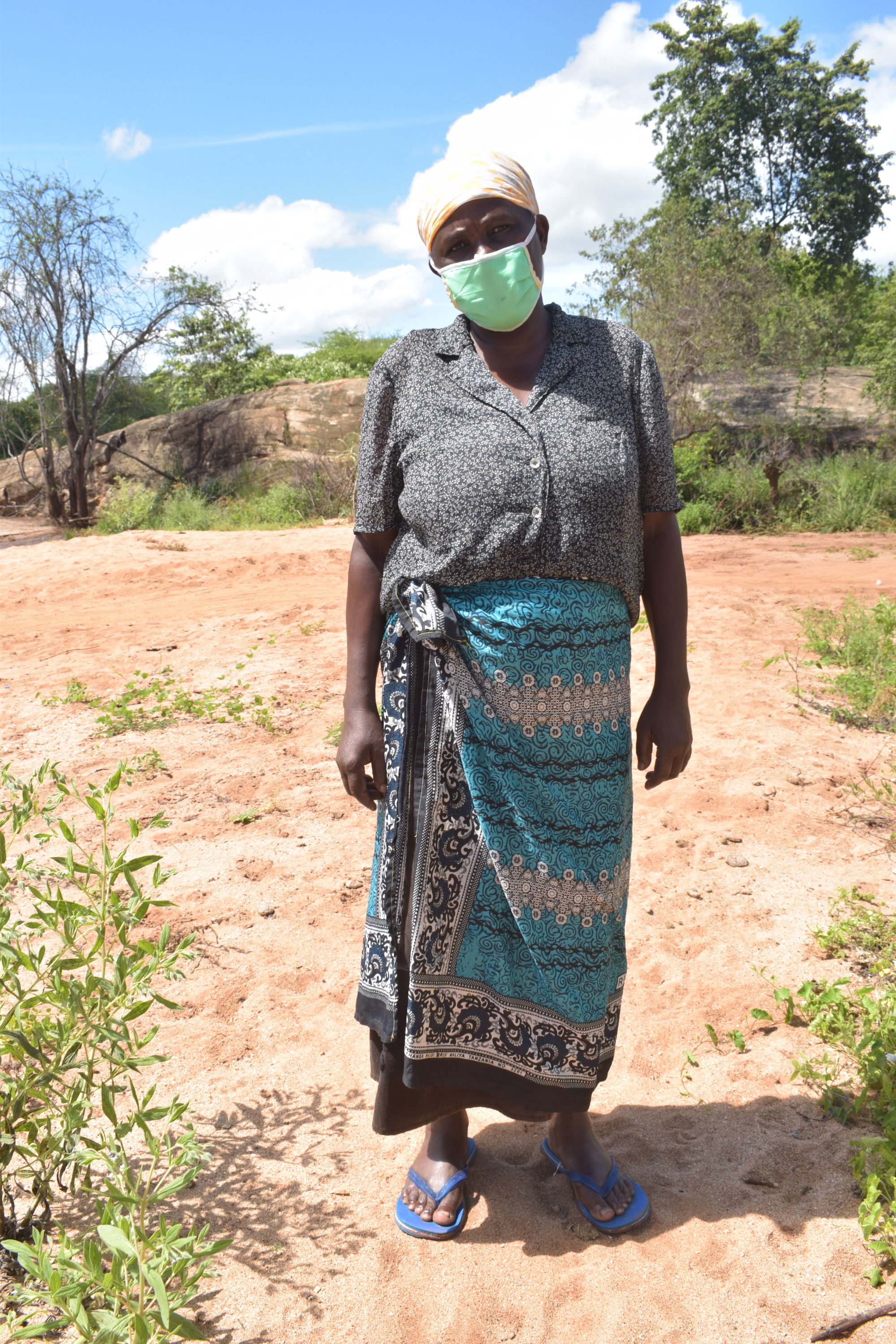
“All my children who were working and supporting me from other towns are currently at home and jobless, which has affected us. I used to have a small shop here at Nzalae market, but I had to use all of my savings and capital on food purchases at home. That led to the closure of the shop since I used up all of my operating capital and stock…Now that I am no longer working and earning money from my business at the local market, I depend entirely on my small farm produce to feed my children who are at home. I had made a good harvest in the previous rainy season, which is helping me sustain my family.”
Tweet